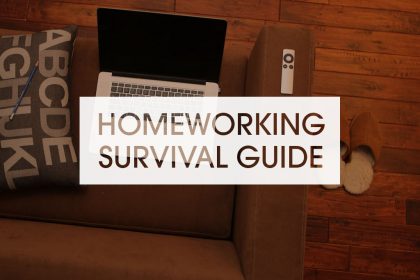Seven signs you’re a workaholic (and how to quit)
Are you worried you work too hard? Learn the seven signs you may be addicted to work, and find out how you can overcome your workaholism.
Today Oby Bamidele is a mindset coach and therapist. She empowers women to break out of self-limiting mind-sets and beliefs so they can live optimal, authentic and exciting lives – work she loves.
But Oby’s life wasn’t always as fulfilling. A self-confessed recovering workaholic, she spent years giving to much of herself to her career. Now she’s sharing her story and advice with us.
I believed that 12 hours days equaled dedication
For many years I fooled myself into believing the lie I fed myself, that pulling 12 hour days, working through lunch breaks and working weekends were true qualities of a diligent, committed and dedicated worker.
During interviews I would proudly boast about how much of a grafter I was, going above and beyond to do what was necessary. Or, and this is the best bit, when asked to state an area of my work that I could improve on, I would turn this negative trait into a positive and say something in the lines of, “My dedication and commitment to my work sometimes means I prioritise work over my social life, but it’s something I’m aware of and need to improve on”
After suffering stress, exhaustion, a breakdown and health implications I decided to really look at my life and choices which was the start of my counselling journey and career change.
The addiction of this century
Workaholism is a huge epidemic in modern day society and has been coined the addiction of this century. In my twenties I could not wait to have a work mobile phone and laptop as mark of my professionalism and advancement, but I never could have envisaged the impact having 24-7 access to work would have over me.
I love working from home, it is such as blessing to not have to bother with trains, getting made-up and dressed up for work. However, instead of putting my two hours and thirty minutes of travel time to better use – exercising, reading or just sleeping in- I spent it on work, with much glee.
As destructive as workaholism is to a person’s life, it is sadly an addiction that is condoned, excused and overlooked within the workplace. It is no different to alcoholism, substance abuse or eating disorders, in that the sufferer is enslaved to a soul destroying habit, except in this case the drug is work.
In my case, I struggled to leave unfinished work until the next day. There was huge sense of incompleteness in doing so, even if I was tired, exhausted and could barely read my computer screen by that point.
Colleagues who took breaks were more productive
Many years ago I worked with a colleague who unfailingly took her lunch break, left work at 5:30pm and never worked weekends. Yet she was more productive than I ever was.
At the time, we worked as accountants and there were gruelling days of trying to reconcile balance sheets during the company’s yearend. Come 5:30pm, if the books weren’t balanced, she would admit defeat and say “I’ll figure it out in the morning,” leaving me working into the dead of night looking at the same numbers I had already calculated hundred times over.
The harder I worked, the better I felt
“You know there is problem when you are on first name basis with the night cleaners at work”
It took me having counselling to finally figure out there were deeper issues driving me to overwork. I discovered how critical I was towards myself. I recalled as a young child, lounging, relaxing and having nothing to do was frowned upon. “Idle hands are the devil’s workshop”, therefore we always had to be busy.
Hard work, excellence and pro-activeness was the way to my mum’s heart and behaviour like that certainly was rewarded. So, the harder I worked the better I felt.
“I remembered how after every exam or event, I was left deflated, empty, looking for the next thing”
That carried on into my career. I always felt this sinking feeling around 5pm particularly if my work was unfinished which meant I had to stay behind and finish off work in order to overcome the feelings. Soon the sinking feeling became conditioned into a pattern of behaviour where at 5:30pm, when others were closing down their machines I was just rearing to go and ready to clock in more hours.
As a therapist, I’ve heard so many similar stories from my clients. It usually takes a crisis, a mental, physical or relationship breakdown for people to own up to their workaholism.
Seven signs you are a workaholic
Norwegian researchers from the Department of Psychosocial Science at the University of Bergen, identified specific symptoms associated with workaholism. They devised a work addiction scale based on the following seven criteria to assess the likelihood that an individual possesses a work addiction:
- You look for ways to free up more time, so you can work.
- You spend much more time working than you initially planned.
- Working helps to reduce feelings of guilt, anxiety, helplessness and/or depression.
- It is affecting your relationships and you have been told by others to cut down, but you have not listened.
- You show signs of stress and frustration when unable to work.
- You replace hobbies, leisure activities, with more work.
- Your health is being compromised as result of constant working.
If you answered “often” or “always” to any of these points, you may be a workaholic. Perhaps now is the time to reassess?
Six ways to overcome workaholism
If you’re worried that your addiction to work has become unhealthy and is taking over your life, here are six ways you can overcome your workaholism:
- Don’t be afraid to seek help. Therapy could help you understand deeper unresolved issues driving your workaholism and put steps in place to manage your behaviour.
- Learn to be nurturing. Workaholism is usually linked to being very critical of yourself. Set aside regular times for self-care. Take long baths, listen to music, immerse yourself in a good book, treat yourself to a spa day.
- Pick a hobby or two. Find things non-work related that really excite you. You could learn to bake, join a dance class, learn to sew. Whatever it is, make sure it is fun and you enjoy it.
- Be intentional. Plan your days and weeks ahead and schedule times for breaks, relaxing and fun activities that you could look forward to.
- Be accountable: speak to close friends and family who can encourage you and hold you accountable to your new routine.
- Practice gratitude living daily. Each day write down 5 things you are grateful for. This will help you to put situations into perspective and appreciate even the small things.
Oby Bamidele is a registered counsellor, transformational coach, trainer, writer and speaker. You can find out more about how she can help you on her website.










